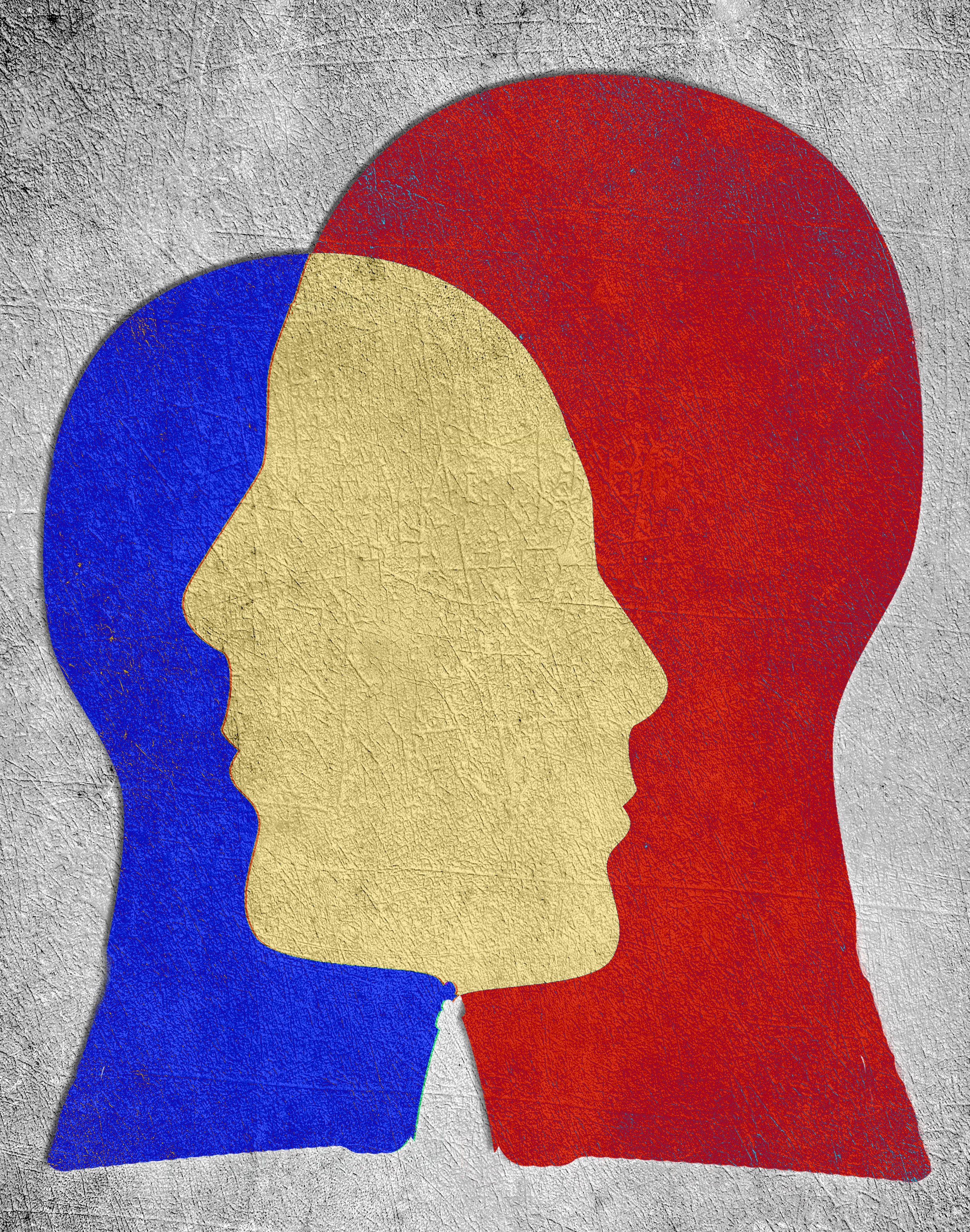Choosing Between Online and In-Person Therapy
Although most of our therapists work in person in Blackheath Village, many also see clients online. Both formats are well established and widely used. Research suggests that each can be effective, but they do not suit everyone in the same way.
The more helpful question is often not which format is better, but which one is more likely to work for you at this point in your life.
New NHS-Based Research on Art Therapy and Burnout
Art therapy provides a structured therapeutic framework that does not rely solely on verbal reflection. Working with images and materials can support the exploration of experiences that feel difficult to articulate or that have been set aside in the course of ongoing professional demands. The group context also allows for shared recognition of emotional strain.
The Therapeutic Relationship: Why It's More Than Just Talking
What makes therapy work? It is a question many people ask when they are thinking about starting.
When people first consider therapy, they often imagine it as a simple exchange: they will talk about their problems, and the therapist will listen and offer advice. Whilst talking is certainly part of the process, this view misses something fundamental about what makes therapy effective. The therapeutic relationship itself is not just the container for the work; it is often the mechanism of change.
Dynamic Interpersonal Therapy for Autistic Adults: A Neuro-Affirming Approach
Dynamic Interpersonal Therapy, or DIT, is a structured, time-limited psychodynamic approach that focuses on understanding patterns of relating and emotional experience. Whilst it has traditionally been used in mainstream mental health settings, when thoughtfully adapted for autistic individuals, DIT offers something particularly valuable: a framework for fostering self-understanding and relational wellbeing that respects and affirms autistic identity rather than attempting to change it.
One Year of Heathwell: The Story So Far
A year later, we are thirteen therapists working across two rooms. We have supported individuals, couples, young people, and older adults with everything from relational trauma and ADHD to psychosexual difficulties and life transitions. The breadth of experience and specialism each therapist brings has made the practice what it is today.
Together we offer therapy in eleven different approaches and nine languages, reflecting the diversity of the clients we serve and the community we belong to.
The ADHD Iceberg: What Lies Beneath the Surface
When people think of ADHD, they often picture what is most visible: difficulty focusing, restlessness, impulsivity and forgetfulness. These are the traits that others notice first, the behaviours that get labelled, the symptoms that make it into diagnostic criteria. Yet these visible signs are only a small part of the full picture.
The Grief of Late ADHD Diagnosis: Mourning the Life You Might Have Had
Late ADHD diagnosis, particularly in adults diagnosed in their thirties, forties, or beyond, often triggers a profound mourning process. This isn't the straightforward grief we associate with losing someone we love. It's more complicated, more ambiguous. You're mourning a version of yourself that never got to exist, opportunities that slipped away, and decades spent believing harmful narratives about your character, such as thinking that there is something wrong with you.
Why 'Just Leave' Isn't Helpful Advice for Domestic Abuse Survivors
When someone we care about is experiencing domestic abuse, our instinct is often to offer what seems like obvious advice: "Just leave." It appears straightforward, remove yourself from the harmful situation and start fresh. However, this well-intentioned counsel frequently misses the complex psychological, practical, and safety considerations that survivors face. Understanding why "just leave" isn't helpful advice is crucial for anyone supporting someone through domestic abuse, and for survivors themselves who may be struggling with guilt about why leaving feels so difficult.
When Sex Becomes Stress: Anxiety, Avoidance, and Routes Back to Intimacy
For many people, intimacy begins as a source of connection, pleasure, and bonding. Yet over time, what once felt natural and enjoyable can transform into something that triggers anxiety, creates distance, and generates stress. When sex becomes a source of tension rather than connection, individuals and couples often find themselves caught in cycles of avoidance that can feel impossible to break.
5 Signs It's Time to Try Couples Therapy (and What to Expect)
Many couples wonder if their relationship problems are "bad enough" to warrant professional help. The truth is, you don't need to be on the brink of separation to benefit from couples therapy. In fact, seeking support before issues become entrenched often leads to better outcomes. Here are five clear signs it might be time to book that first session, plus what you can realistically expect from the process.
Art Therapy Explained: How Creative Therapy Improves Mental Health
Art therapy is a unique form of psychotherapy that combines creative expression with psychological support. Far from being just "making pretty pictures," it is a clinically informed practice that uses art as a tool for exploring emotions, improving mental health, and fostering personal growth. Whether you are struggling with anxiety, depression, trauma, or simply seeking greater self-understanding, art therapy offers a safe and supportive space to explore your inner world.
Why Men Hesitate to Seek Therapy (And How to Overcome the Stigma)
Despite growing awareness around mental health, men remain significantly less likely to seek psychological support than women. This reluctance to reach out for help has profound consequences, not just for the men themselves, but for their families, relationships, and communities. At Heathwell Blackheath, we have experienced counsellors and psychotherapists who specialise in supporting men through their mental health journeys. Understanding why men hesitate to seek therapy is crucial for dismantling the barriers that prevent them from accessing the support they need.
Understanding Dynamic Interpersonal Therapy: A Focused Approach to Relationship Patterns and Emotional Wellbeing
When the same relationship patterns keep repeating and emotional difficulties feel overwhelming, many people wonder if there's a way to create meaningful change without years of therapy. Dynamic Interpersonal Therapy (DIT) offers an evidence-based solution that works with both symptoms and the underlying interpersonal patterns that often fuel them.
Do You Feel Like the Parent in Your Relationship?
Do you ever feel like you're the only adult in your relationship? Like you're constantly managing, organising, and remembering everything while your partner seems to coast along? If this resonates with you, you're experiencing what many therapists recognise as the parent-child dynamic in romantic relationships.
You're not alone in feeling this way, and more importantly, it's not your fault. But understanding how this dynamic develops, and how to change it, can transform your relationship from one of caretaking to true partnership.
What to Look for When Choosing a Therapist
Starting therapy is a significant step towards better mental health and wellbeing. But with many different therapeutic approaches and thousands of practitioners across London to choose from, how do you find someone who's not just qualified, but truly right for you and your unique circumstances?
This comprehensive guide will help you navigate both the practical considerations of choosing a qualified therapist and the equally important question of finding the right therapeutic approach for your needs.














